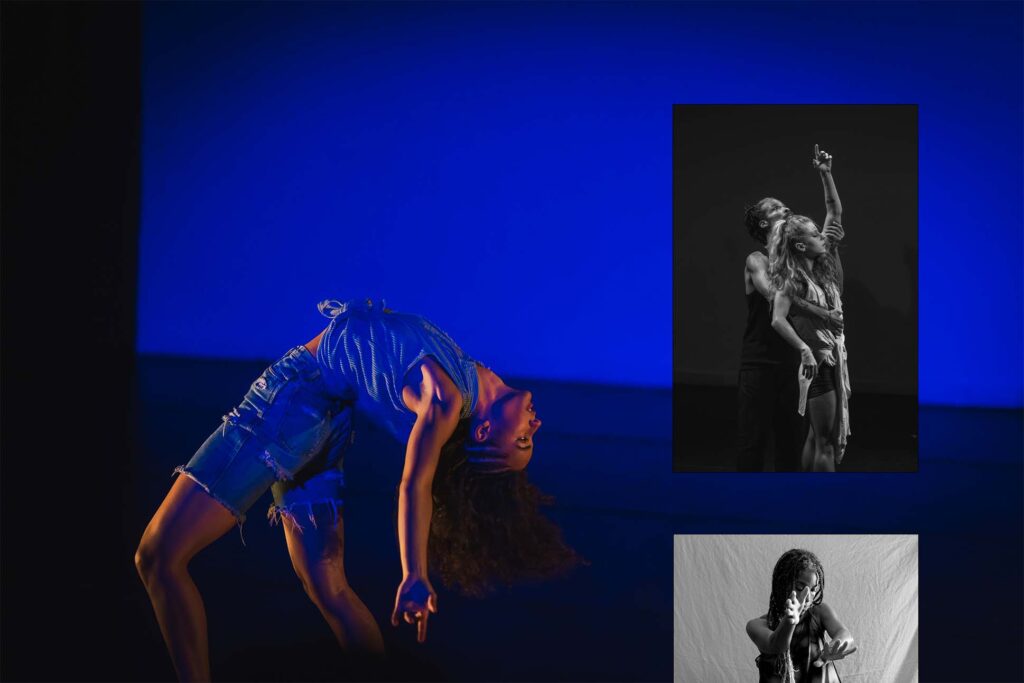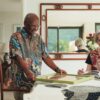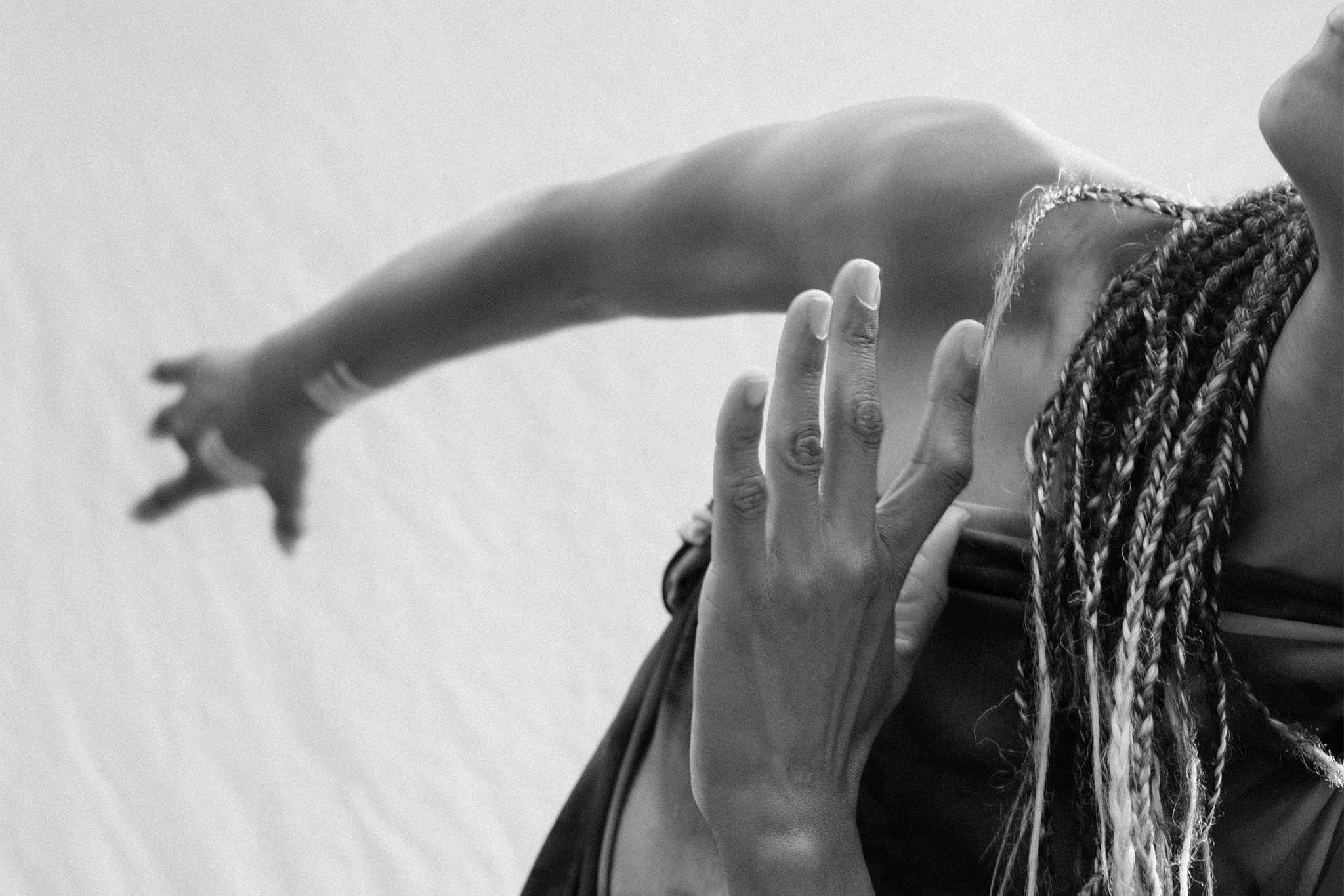Text by Chelsea Tsuchida
Images by Danny Boyd, Daeja Fallas, Lamont Richardson, and courtesy of Dancers Unlimited and the International Human Rights Arts Festival
A group of female dancers sit in an intimate circle under a pavilion on the lush windward side of O‘ahu, wooden spoons and metal pots and mixing bowls in hand. As music rises from a set of speakers nearby, the spoons and metal vessels become instruments, adding percussion to the soundtrack as the dancers clang them in time with the beat. The performance is the opening piece for Edible Tales, a multimedia dance installation whose subject matter—cultural heritage, social justice, sustainability—is more akin to that of an activist group than a performance company.
For many dance troupes, the primary objective is entertainment or competition, and all efforts are in service to the final performance. “For us, it’s the other way around,” says Keala Fung, a classically trained dancer who joined the nonprofit Dancers Unlimited as a performer and choreographer in 2010. “At DU, the process is more important than the final product.”
At the Edible Tales event, which was held at Kualoa-He‘eia Ecumenical Youth (KEY) Project in Kāne‘ohe in fall 2022, audience members weren’t just passive viewers, they were co-creators: Attendees translated the taste of local honey and noni juice into interpretive movement, twisted newspaper scraps to prepare an imu, decorated plates to hang on the branches of a noni tree, and created music with bamboo sticks, accompanied on the ipu by Hawaiian master instrument maker and kumu hula “Uncle” Calvin Hoe.
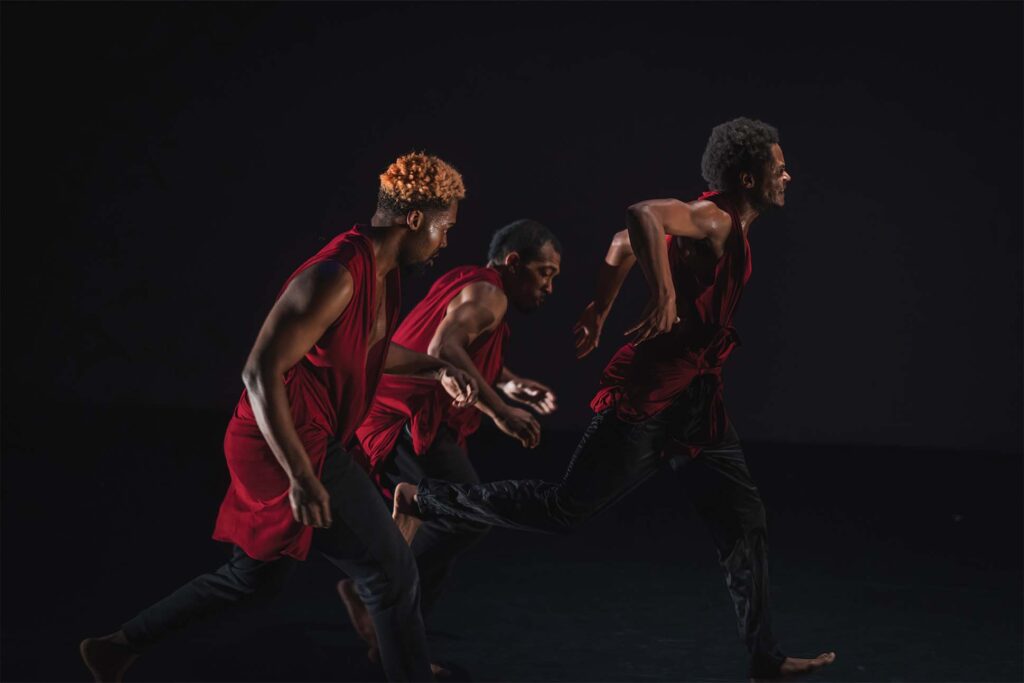
or sport, Dancers Unlimited sees dance as an invitation to explore one’s humanity.
Throughout its 14-year history, Dancers Unlimited’s guiding principle has been what executive and co-artistic director Linda Kuo describes as a “call and response” with the community. When she started Dancers Unlimited in 2009, it was intended as a youth program to fill the void left by Furlough Fridays, a cost-cutting initiative by the state that removed 17 teaching days from the 2009 to 2010 school year at Hawai‘i’s public schools. Thanks to local community centers, studios, and dancers who donated their space and time, Dancers Unlimited was able to offer free dance classes to students left without schooling every other Friday.
When Furlough Fridays came to an end in 2011, Dancers Unlimited had established a core group of members, many of whom had returned home to Hawai‘i after dancing professionally on the U.S. mainland. The organization turned to fundraising to pay its dancers and cover operating expenses, and within seven months of hosting its first free youth class, Dancers Unlimited was performing at Expo 2010, a major world’s fair in Shanghai, China.
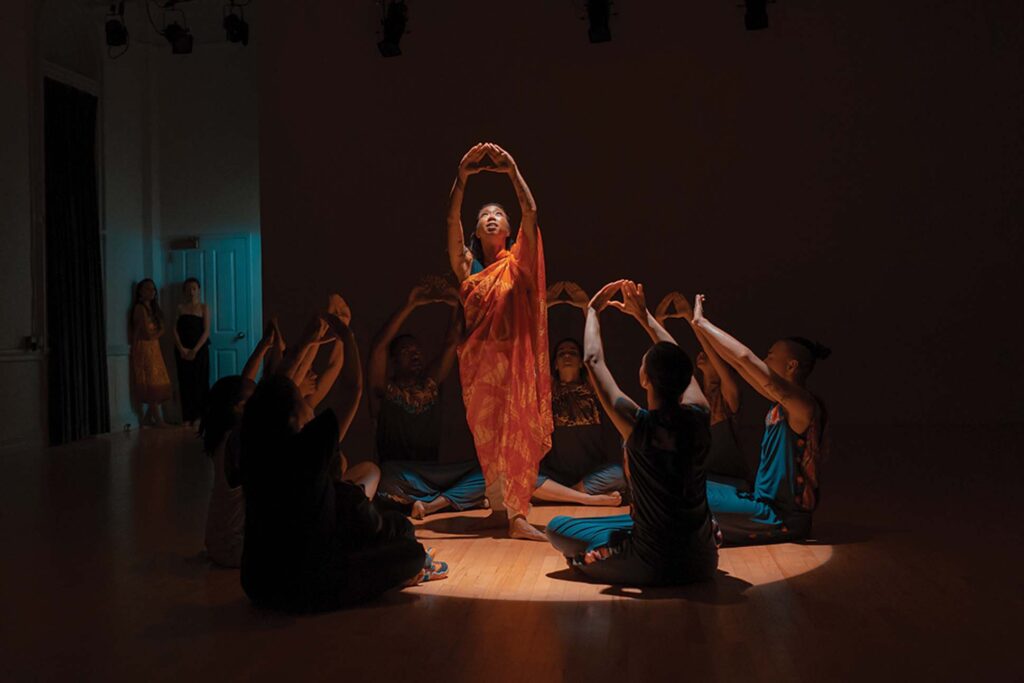
Now based in both Honolulu and New York City, Dancers Unlimited has retained its grassroots feel, focusing on effecting change through individual action and self-discovery. In 2017, in response to anti-immigrant rhetoric surrounding the Mexico–U.S. border crisis, the company launched an ongoing project designed to foster dialogues around immigration—inviting immigrant choreographers and dancers to share their stories, hosting collaborative choreography sessions, and staging dance installations in response to dancers’ learnings, personal reflection, and research. In 2019, in light of renewed public protest against construction of the Thirty Meter Telescope on Mauna Kea, Dancers Unlimited turned its attention to Indigenous rights and traveled to Hawai‘i Island to join the front lines of the Kū Kiaʻi Mauna (Guardians of the Mountain) movement.
Since being granted 501(c)(3) status in 2020, Dancers Unlimited has been working to bring social justice issues to the forefront of its programming, especially in Hawai‘i, where more than half of the organization’s funding comes directly from community members. “In recent years, our relationship and the way we engage with the community here in Hawai‘i has become the model for how we function in New York,” Kuo says.
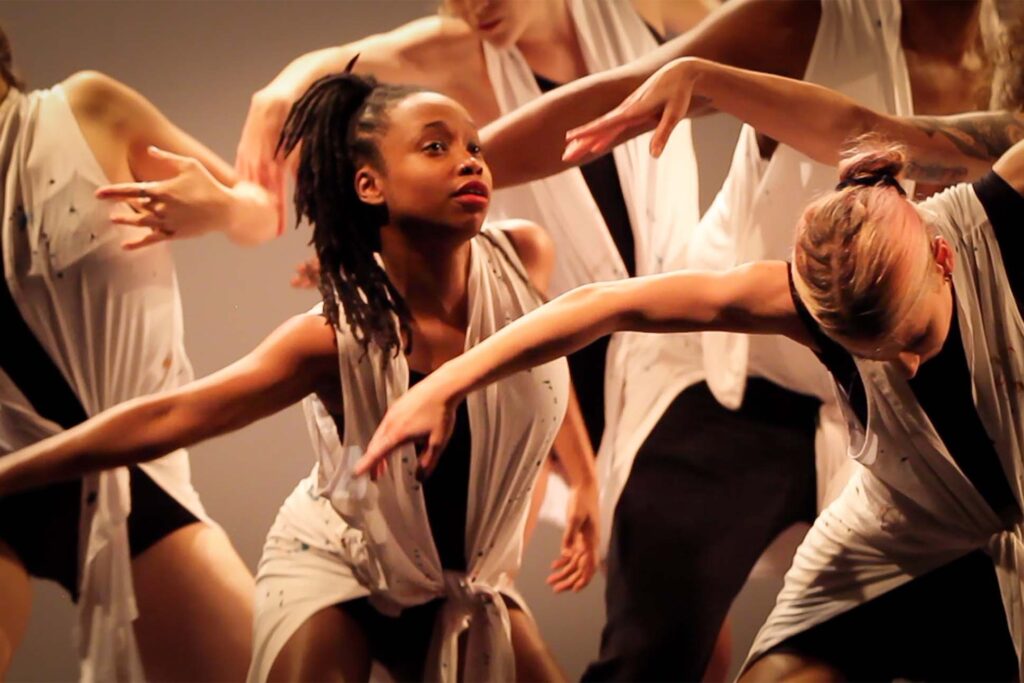
In New York City, the company’s programming is supported in part by New York State through regional arts councils and state-funded residency programs. In Hawaiʻi, Dancers Unlimited relies heavily on individual donations—some as little as $5, Kuo says—to sustain its work. Fortunately, the company’s deep roots in the island community have allowed it to thrive. In 2022, Dancers Unlimited’s annual fundraising campaign, brought in more than $23,000, a shining reflection of the trust and relationships the company has steadily built among its supporters in Hawai‘i.
“Linda has curated the space to hold people to come as their full selves,” says Nicole Maileen Woo, a company member and longtime ally of the organization who choreographed the opening number for the Edible Tales performance at KEY Project. “Dancers Unlimited is very much rooted in autonomy and sovereignty of the [individual]. That’s why, even though people come and go, the mission remains just as strong—because that doesn’t change.”
